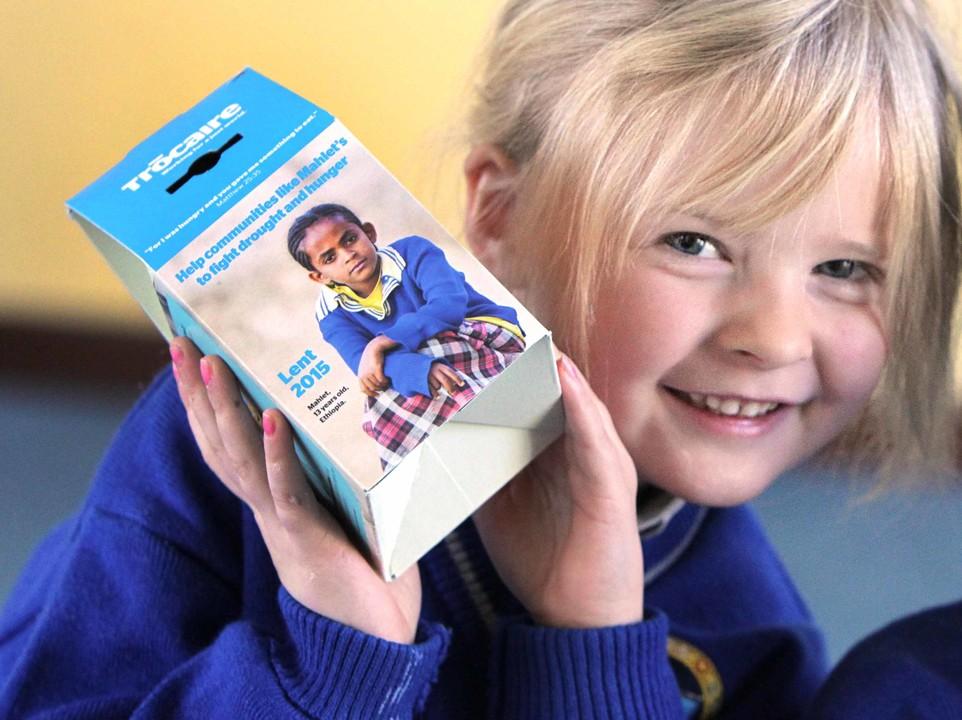For many growing up in the early to mid-eighties in Ireland our first exposure to 'other', to people 'not like us', or not 'from here', came in the classroom. Every Lenten season the Trócaire boxes arrived, as they still do, in schools around the country. On each of them was often a striking picture of a young child, much the same age as we were, but in some way different. To our innocent and curious six year old selves we couldn't quite articulate what this difference was but we recognised it. The image of the Trócaire box popped into my head as I reflected on the recent survey from the European Commission showing that Ireland had the third highest level of openness to immigrants (80%) after Spain (83%) and Sweden (81%). The EU28 average is 58%.
That the Irish are a welcoming people has been commented upon for generations. And while we may sometimes feel like this is a worn out statement, one we tell ourselves rather than a true reflection of an outsiders experience, surveys like the one published by the EC are important litmus tests of this age old adage. While we must not be complacent, and for sure the work of welcome is never done, we can and should rightly take pride in what it says about us as a nation.
This most recent survey caused me to pause and reflect on the contributing factors that have made the Irish so open to and accepting of immigrants. One might suppose that it is because we too are a nation of immigrants, with sons and daughters flung to the far reaches of the globe and that because of this immigrant experience it is only natural that we would reflect back the hospitality and opportunity so many of our people have found elsewhere. But a glance at the findings of the survey would point to this not being typical. The three lowest ranking countries in the survey are all Eastern European countries (Czech Republic; Hungary; and Bulgaria), countries who too have large populations of their own people who have travelled beyond their borders in search of brighter futures.
So what has contributed to this underlying openness to other that, while not ubiquitous, is clearly a trait of Irish society? In searching for an answer surely one cannot look past our schools, and the teachers that serve in them. The foundation for so much of who we are was laid down during our early days in the classroom. If you love books, have a passion for sport, or an insatiable interest in the scientific method it is likely that you can trace this back to a person or time from your school days. So too with many of our root beliefs and values. It is true that our family had a central role, however there were some concepts, some realities that were more deeply explored inside the classroom than the living room.
One of these realities, for many I suspect, was that we are not all 'the same'. We talk differently, look different, grow up in different places and face different challenges. These differences were most keenly revealed to 6 year old me through the teachable moment that was the annual arrival of the Trocáire box. The differences we encountered between us and the child on the box were so vivid and yet we couldn't relate to their reality, one that sounded so scary and unfair. Into this stark contrast our teacher would draw out the one unifying truth that we shared. It was that we were all equal and therefore their lives, like ours, had innate value. Like many growing up in Ireland this teaching happened in a Catholic school and so the 'why' behind this truth helped illuminate it. The 'why' being that we are made in the image and likeness of God and there was no hierarchy of children in His eyes.
We were taught that we had a responsibility to each other for 'I am my brothers and sisters keeper'. We were told stories of Irish men and women, in those days most often priests and nuns, who had committed their lives to serving these children and their families. Compassion and empathy were fostered by our teacher, rather than letting pity take hold. Our sense of social justice was stoked, most simply then by sharing our pocket money or forgoing sweets over Lenten so that we could try and make a 6 year old level difference. It is those early seeds of social action that have seen a new generation of Irish young people set out into the world to take the torch from the religious missionaries of past decades. It is what took me to places like Chernobyl and Haiti, to listen, learn, and provide any meaningful support I could.
And so when we consider why we are Irish are so open and accepting of others I think again of the Trocáire box. I believe it is, in part, because we've been aware of others, been considering others, and been open to others since our earliest days in school. All because of a simple plastic money box in the hands of a committed teacher.
Jonathan Tiernan is Director of the University of Notre Dame's Alliance for Catholic Education initiative in Ireland.
Since this piece was published Dublin was ranked #1 for tolerance and inclusion in the QS Best Student Cities survey!
 Alliance for Catholic Education
Alliance for Catholic Education
